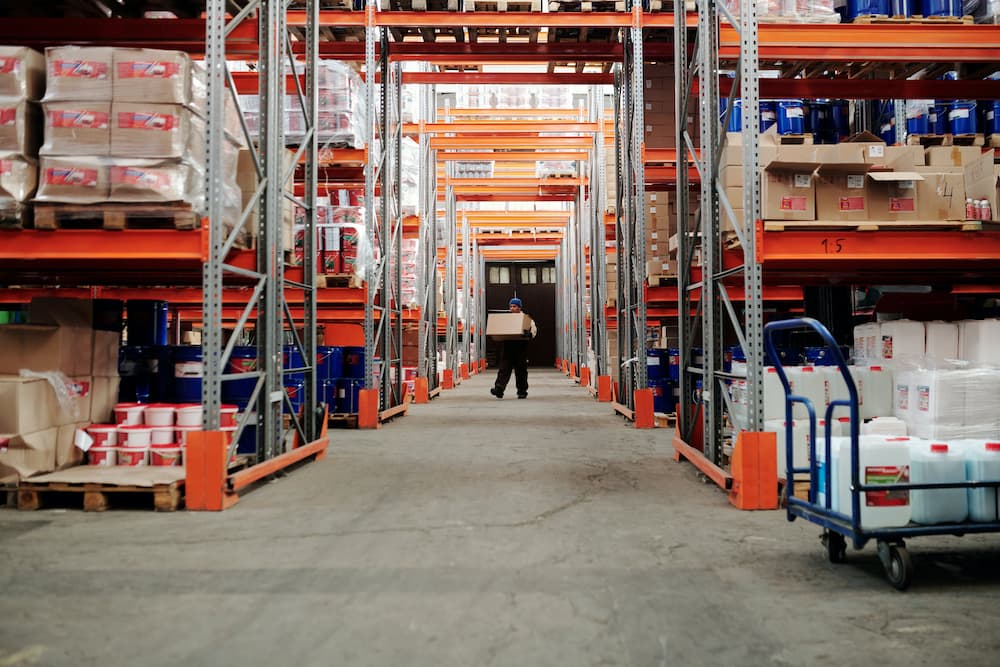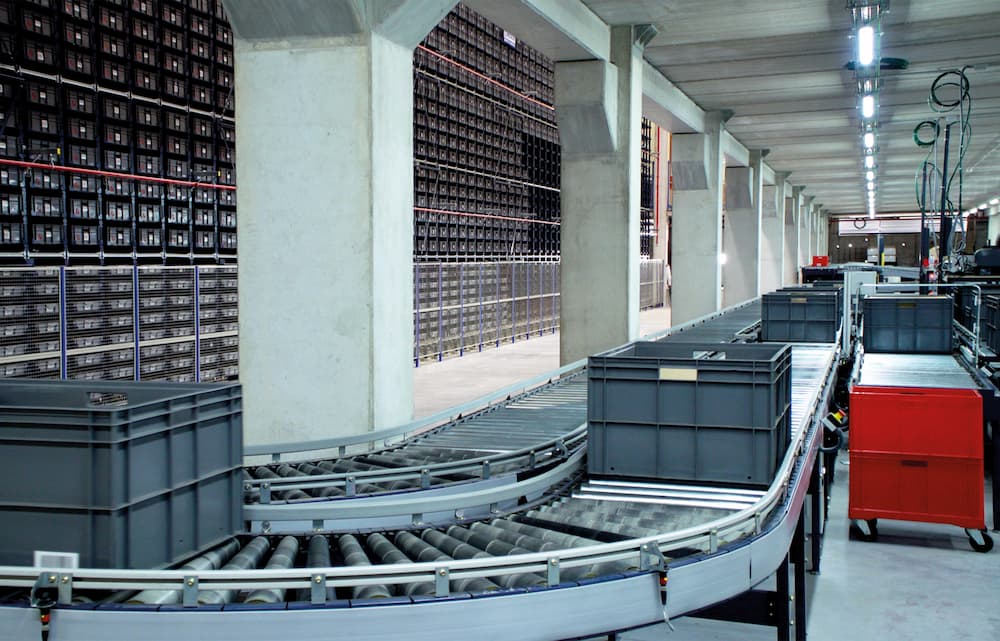Navigating the complex world of modern supply chain management is pivotal for businesses looking to stay ahead in their respective marketplace. A vital piece of this intricate puzzle is 3PL brokerage. Understanding what 3PL brokerage is and the benefits it brings to the table is crucial for companies seeking to enhance their logistics strategies, reduce costs, and maintain a competitive edge in today’s dynamic marketplace.
Today, we’ll unravel 3PL brokerage – its duties, its distinct benefits, and what sets it apart from the world of freight brokers. Moreover, we’ll explore the critical components that drive the success of 3PL brokerage, from cutting-edge technology to the art of forging lasting partnerships and ensuring rigorous compliance.
What is 3PL Brokerage?

Third-Party Logistics
At its core, third-party logistics refers to the strategic outsourcing of various logistics functions to an external service provider. This outsourcing model extends beyond the traditional in-house logistics operations of companies, allowing them to leverage the expertise and resources of specialized logistics partners.
By doing so, businesses can streamline their supply chain processes, reduce costs, and enhance overall efficiency. In fact, a recent market report found that around 80% of Fortune 500 companies entrust 3PL providers with their logistics operations (Gitnux). Before delving into the specifics of 3PL brokerage, let’s first establish a fundamental understanding of third-party logistics.
The Basics of 3PL Brokerage
A 3PL brokerage is an intermediary that facilitates the smooth movement of goods from point A to point B, ensuring that these goods reach their intended destinations in the most efficient and cost-effective manner possible. The core services provided by a 3PL brokerage encompass:
Warehousing: 3PL brokerages often manage warehousing facilities to store products and materials, optimizing inventory management.
Inventory Management: Efficient tracking, control, and replenishment of inventory to prevent stockouts and overstock situations.
Order Fulfillment: Handling the fulfillment process, which includes picking, packing, and shipping orders to customers.
Shipper Services: Coordinating transportation, selecting carriers, and optimizing routes to ensure timely and cost-effective delivery.
3PL brokerages leverage their expertise, industry knowledge, and technological tools to streamline logistics operations, negotiate favorable shipping rates, and ensure the timely and secure movement of goods.
3PL Brokerage vs. Freight Brokerage
A 3PL brokerage, or third-party logistics brokerage, serves as a comprehensive logistics partner. It manages a broad spectrum of supply chain functions beyond mere transportation. This includes warehousing, inventory management, order fulfillment, and transportation coordination. A 3PL brokerage acts as a multifaceted logistics facilitator, offering end-to-end solutions to streamline logistics operations.
On the other hand, a freight brokerage specializes primarily in connecting shippers with carriers. The core function of a freight brokerage is to match available carriers with shippers’ transportation needs. While it plays a crucial role in transportation logistics, it typically doesn’t engage in warehousing, inventory management, or other comprehensive supply chain services.


Pros and Cons
The choice between 3PL brokerage and freight brokerage depends on a company’s specific logistics requirements. While 3PL brokerages offer comprehensive solutions, including transportation, freight brokerages specialize in connecting shippers with carriers.
3PL Brokerage Pros
Comprehensive Solutions: 3PL brokerages offer a one-stop shop for supply chain management, including warehousing and order fulfillment.
Expertise: They bring expertise in optimizing supply chains and can adapt to changing business needs.
Scalability: The non-asset-based approach allows for easy scalability as businesses grow.
3PL Brokerage Cons
Potentially Higher Costs: Comprehensive services may come with higher overall costs compared to using a standalone freight brokerage for transportation.
Complex Operations: Managing multiple aspects of the supply chain can be complex and may require careful coordination.
Freight Brokerage Pros
Specialized Transportation Solutions: Freight brokerages excel at finding the most suitable carriers for specific transportation needs.
Cost-Effective: For companies primarily seeking transportation services, the specialization of freight brokerages can offer cost advantages.
Simplicity: The focus on a single aspect of logistics can simplify operations for some businesses.
Freight Brokerage Cons
Limited Scope: Freight brokerages do not provide the full range of supply chain services, potentially requiring companies to manage other logistics aspects separately.
Less Flexibility: Specialization in transportation may limit flexibility in offering end-to-end supply chain solutions.
Key Components of 3PL Brokerage
The effectiveness of a 3PL brokerage in optimizing supply chain management hinges on several critical components. Among these, technology and automation play a central role, while building strong relationships is equally pivotal.


Technology and Automation
In today’s world, technology is the driving force behind operational efficiency and competitiveness. 3PL brokerages leverage advanced technological solutions to navigate the complexities of supply chain management effectively. Key roles of technology in modern brokerage include:
Efficient Data Management: Technology enables the seamless collection, analysis, and utilization of vast amounts of data. This data-driven approach allows 3PL brokerages to make informed decisions, optimize routes, and enhance overall performance.
Visibility and Tracking: Real-time visibility into shipments is a hallmark of modern 3PL brokerages. This technology empowers clients with accurate tracking information, helping them monitor the progress of their shipments and make proactive adjustments when necessary.
Automation: Automation streamlines various logistics processes, from order processing to inventory management. Automated systems reduce manual errors, increase speed, and enhance accuracy throughout the supply chain.
3PL brokerages rely on a range of software solutions to deliver efficient logistics services. Some of the popular software tools used in modern 3PL operations include:
Transportation Management Systems (TMS): TMS software helps manage transportation planning, execution, and optimization. It aids in route planning, load optimization, and carrier selection, improving transportation efficiency.
Warehouse Management Systems (WMS): WMS software optimizes warehouse operations, including inventory tracking, order picking, and warehouse layout optimization. It ensures that products are efficiently stored and retrieved.
Supply Chain Visibility Platforms: These platforms provide real-time visibility into the entire supply chain, allowing for better decision-making and response to disruptions.
Building Strong Relationships


Successful 3PL brokerages prioritize building strong and enduring relationships with both shippers and carriers. These relationships are the backbone of their operations:
Shippers: By understanding the unique needs and expectations of shippers, 3PL brokerages can tailor their services to align with clients’ objectives. Regular communication with shippers fosters trust and ensures that logistics solutions remain responsive to changing requirements.
Carriers: Maintaining a robust network of reliable carriers is essential for timely and cost-effective transportation. 3PL brokerages nurture partnerships with carriers, offering them consistent business and ensuring that the carrier’s capabilities align with the brokerage’s service quality standards.
Effective communication and collaboration are non-negotiable aspects of successful 3PL brokerage operations.
Communication: Transparent and proactive communication with both shippers and carriers is paramount. Timely updates, feedback, and issue resolution contribute to smoother logistics processes.
Collaboration: Collaboration extends beyond communication and involves working closely with clients, carriers, and other stakeholders to find innovative solutions and adapt to changing circumstances. Collaboration ensures that all parties are aligned toward shared goals.
The key components of a 3PL brokerage encompass leveraging technology and automation for efficiency and accuracy, as well as nurturing strong relationships with shippers and carriers through effective communication and collaboration. These elements collectively empower 3PL brokerages to excel in providing comprehensive logistics solutions to their clients.
Regulatory and Compliance Considerations
The logistics industry is governed by a multitude of regulations, making compliance a paramount concern for 3PL brokerages. 3PL brokerages must ensure that they not only meet regulatory requirements but also provide their clients with the confidence that their logistics operations are compliant.


Overview of Regulations in the Logistics Industry
The logistics industry is subject to a myriad of regulations and compliance requirements at local, national, and international levels. These regulations encompass various aspects, including safety, security, environmental concerns, and trade compliance. Key areas of regulation include:
Transportation Regulations: These cover safety standards for carriers, driver regulations, and vehicle specifications, all aimed at ensuring the secure and efficient movement of goods.
Customs and Trade Compliance: Regulations governing imports and exports, including customs documentation, tariffs, and trade agreements, are vital to international logistics.
Environmental Regulations: Regulations related to emissions, hazardous materials handling, and sustainable practices are crucial for minimizing the environmental impact of logistics operations.
Security Regulations: Measures aimed at securing the supply chain against threats such as theft, terrorism, and smuggling are of utmost importance.
How 3PL Brokers Ensure Compliance
3PL brokerages are well-versed in the intricate web of logistics regulations and employ a range of strategies to ensure compliance throughout their operations. Here are some of the ways they do it:
Real-Time Tracking: 3PL brokerages utilize advanced tracking systems to monitor shipments in real-time. This enables them to promptly address any deviations from planned routes or delays, ensuring that goods comply with delivery schedules and safety regulations.
Compliance Reporting: Compliance reports are generated to document adherence to regulations. These reports provide a comprehensive record of the journey, including safety measures, customs compliance, and any incidents that may have occurred during transit.
Accurate Documentation: Precise documentation is fundamental in logistics. 3PL brokerages meticulously prepare and manage the necessary documents, including bills of lading, customs forms, and shipping manifests, to ensure compliance with customs and trade regulations.
Record Retention: 3PL brokerages maintain robust record-keeping practices, preserving all relevant documents for a specified period, often in accordance with legal requirements. These records serve as evidence of compliance in case of audits or investigations.
Audit Preparedness: 3PL brokerages maintain a state of readiness for regulatory audits. They ensure that all records and documentation are organized, accessible, and up to date, facilitating swift and successful compliance checks.
Navigating the Future with 3PL Brokerage Solutions
The value proposition of 3PL brokerage is undeniable. It’s a strategic partner that empowers businesses to streamline their supply chain operations, reduce costs, and maintain competitiveness in today’s dynamic marketplace. By offering end-to-end solutions, leveraging cutting-edge technology, and nurturing strong relationships with shippers and carriers, 3PL brokerages are not just logistics providers; they are enablers of growth and efficiency.
Our team at Hanzo Logistics understands that every business is unique, with its own set of challenges and opportunities. That’s why we go beyond the ordinary to tailor our warehousing and logistics services to your specific needs. Whether it’s optimizing your supply chain, ensuring regulatory compliance, or harnessing the latest technological innovations, Hanzo Logistics is here to drive your success.
As we navigate the future, 3PL brokerage remains an indispensable asset, poised to navigate the ever-evolving supply chain landscape with expertise and innovation. The value it brings extends far beyond logistics; it’s a cornerstone of success for businesses seeking to thrive in an increasingly complex and interconnected world.



